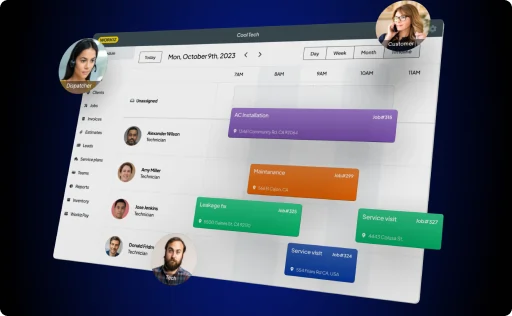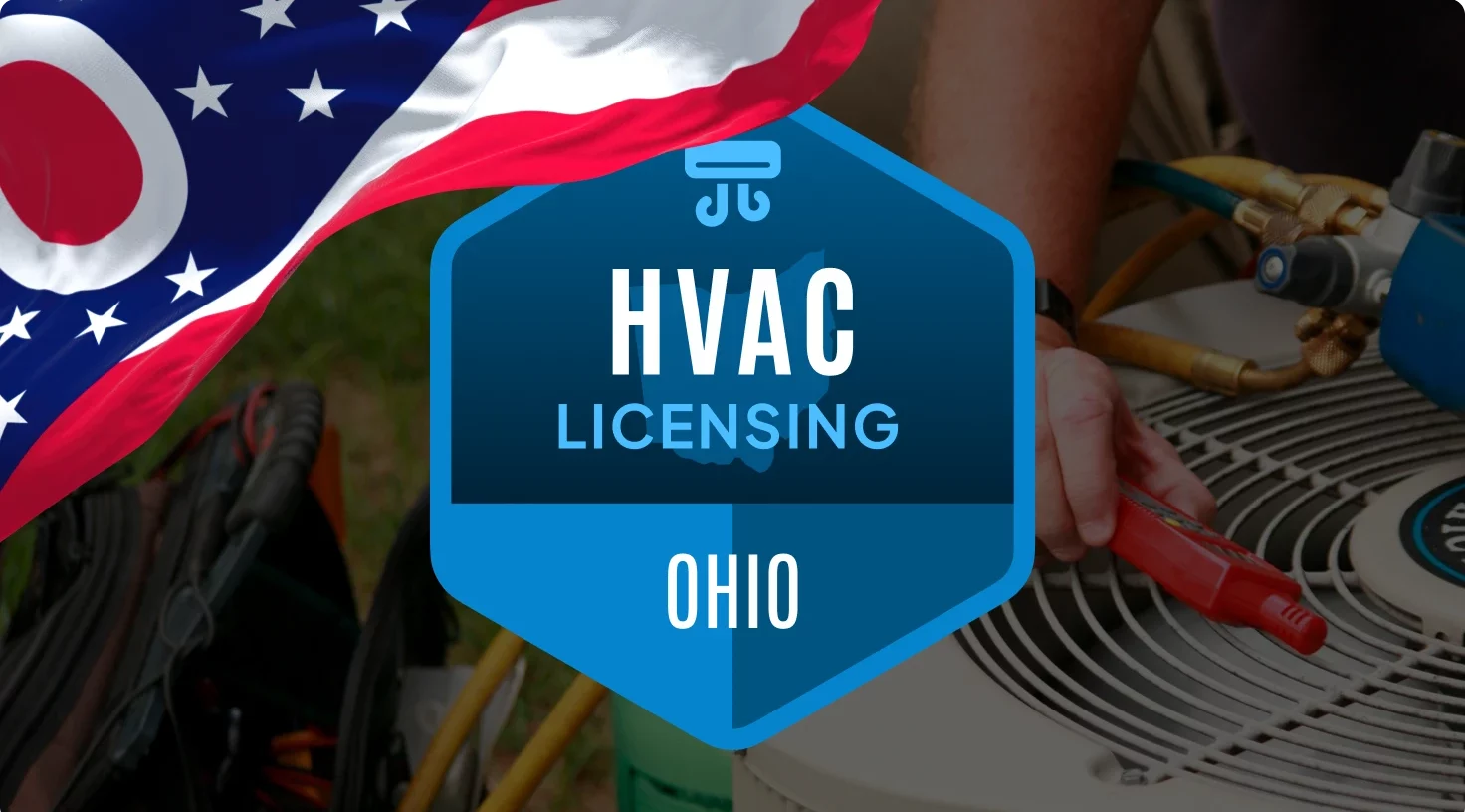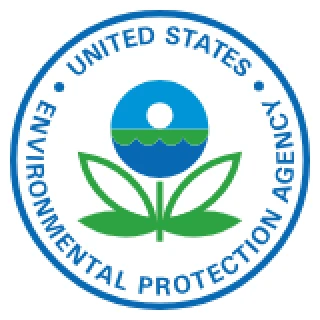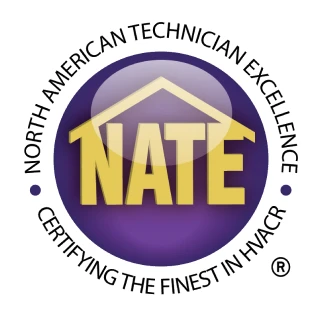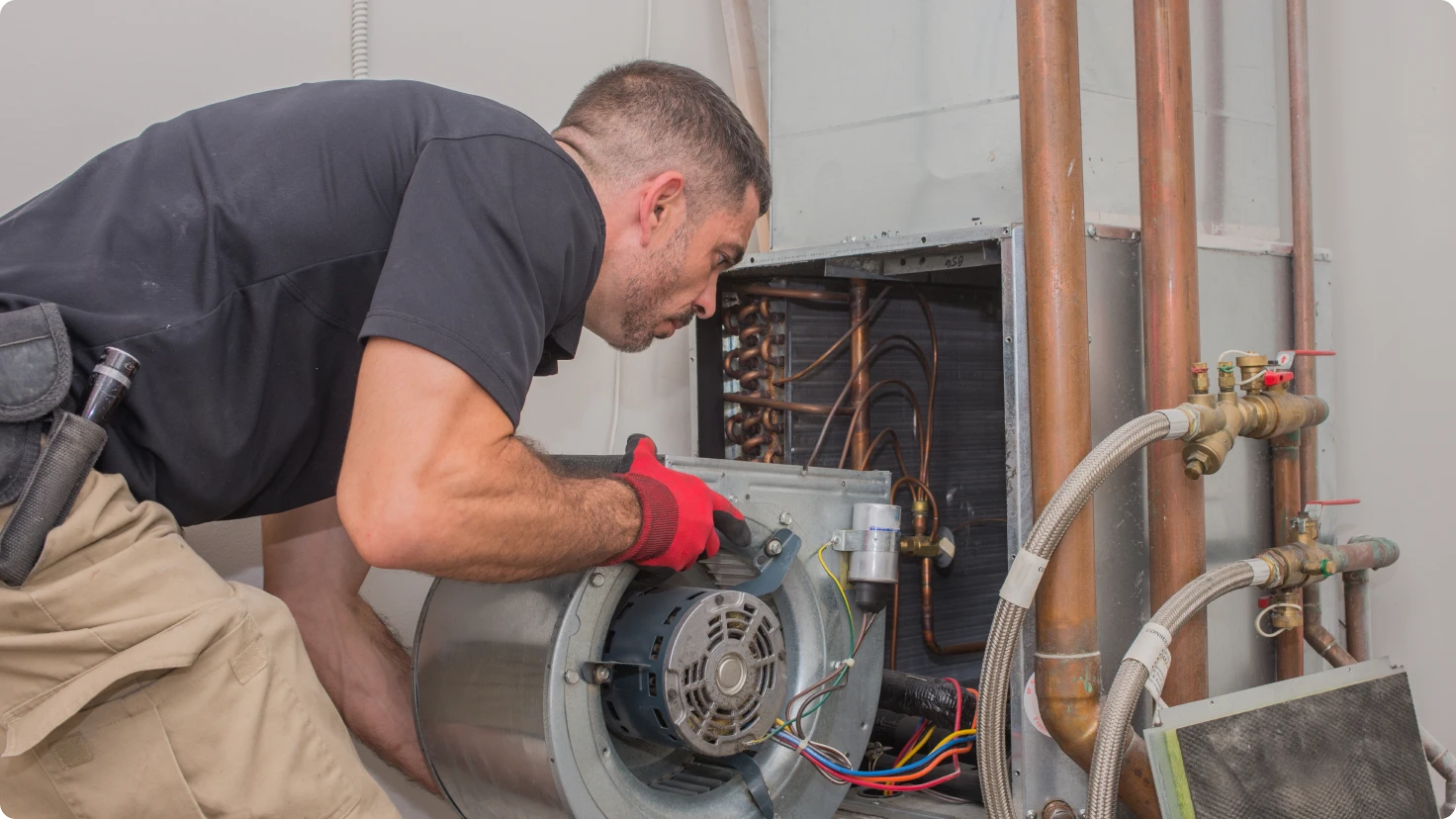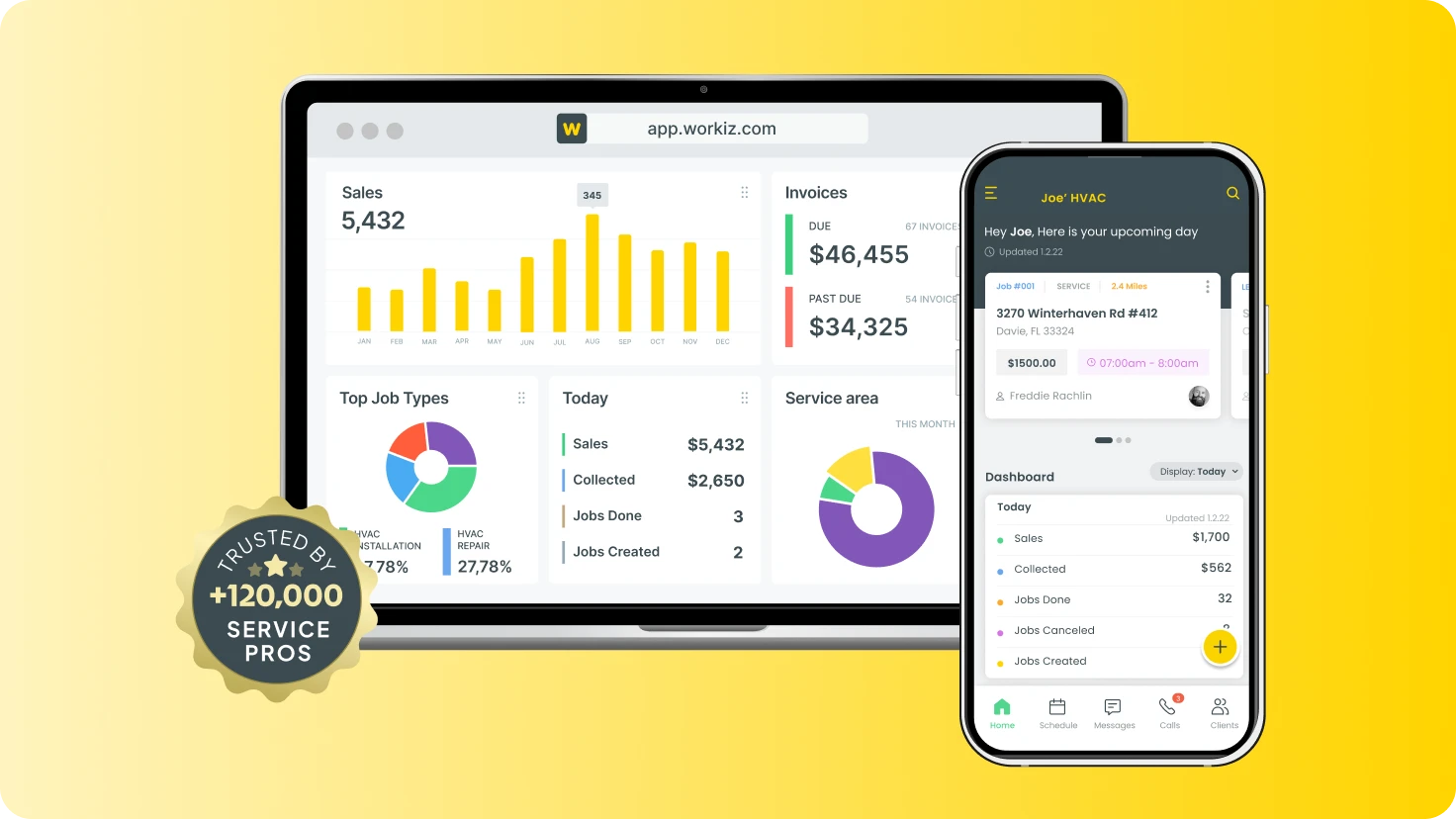Licensing requirements
In Ohio, the requirements for obtaining an HVAC license vary based on the type of property you intend to work on. While an HVAC license is not mandatory for residential properties, individuals seeking to provide HVAC services for commercial buildings must obtain a license from the Ohio Construction Industry Licensing Board (OCILB). Furthermore, to be eligible for an HVAC license in Ohio, you need to be at least 18 years old.
HVAC Certifications
Here are some HVAC certifications you may need to attain depending on the requirements and other factors.
EPA Certification
Description: EPA certification is essential for HVAC contractors who work with refrigerants or coolants. As HVAC systems involve handling these substances, certification ensures the safe and proper management of refrigerants, which is critical for environmental protection.
EPA Certification elevates your professionalism within the HVAC field. It distinguishes you as a contractor who values safety, environmental protection, and the well-being of clients
Eligibility and Requirements: Contractors must complete EPA-approved training and pass an examination to receive their certification. The certification has several subcategories, including:
- Small Appliances
- High-Pressure Coolants
- Low-Pressure Coolants
Responsibilities and Benefits:
- Ability to handle refrigerants legally and safely, minimizing environmental impact.
- Compliance with federal regulations regarding refrigerant management.
- Enhanced reputation among clients due to demonstrated expertise in refrigerant handling.
NATE Certification
Description: North American Technician Excellence (NATE) certification is a voluntary certification that demonstrates an HVAC contractor’s expertise and knowledge in the field.
Eligibility and Requirements: To earn NATE certification, contractors need to pass a series of rigorous exams that assess their skills in various HVAC specialties.
Responsibilities and Benefits:
- A mark of excellence that showcases your expertise to clients and employers.
- Increased credibility and confidence in your abilities.
- Potential for higher-paying job opportunities due to recognized competence.
HVAC licenses in Ohio
In the state of Ohio, there are distinct license types and certifications tailored to different aspects of the HVAC industry. These include:
Commercial Contractor License for HVAC
Description: The Commercial Contractor License for HVAC is the main state-level license issued to individuals who intend to provide HVAC services in commercial buildings. This license covers a wide range of responsibilities, including installation, maintenance, and repair of HVAC systems in larger settings.
Working on HVAC systems in commercial properties is an intricate endeavor that requires a deep understanding of not only HVAC systems themselves but also the unique demands of larger-scale structures. Commercial buildings, such as office complexes, shopping centers, and industrial facilities, have diverse and complex HVAC systems that serve a higher number of occupants, accommodate specialized requirements, and adhere to stringent industry standards.
The Commercial Contractor License for HVAC equips professionals to navigate these complexities. It ensures that contractors possess the necessary skills to design, install, maintain, and repair HVAC systems that cater to the comfort, safety, and operational efficiency of commercial spaces.
Eligibility and Requirements: To obtain this license, applicants usually need to meet the following requirements:
- Demonstrated experience and expertise in HVAC work, typically with a minimum number of years working as a tradesperson.
- Fulfillment of application and fee payment requirements.
- Adherence to state laws and regulations.
Responsibilities and Benefits:
- Authorization to work on HVAC systems in commercial buildings, which often involves more complex and larger-scale systems.
- The potential to bid on and manage HVAC projects for commercial clients.
- A platform for establishing credibility and gaining clients’ trust for high-level HVAC services.
HVAC Engineer
Description: HVAC engineers are professionals who design and build HVAC systems to meet specific requirements for efficiency, safety, and comfort. While not a traditional license, becoming an HVAC engineer involves advanced certifications and educational qualifications.
Eligibility and Requirements: HVAC engineers typically need to meet the following requirements:
- Holding a bachelor’s degree in mechanical engineering or a related field.
- Possessing optional certifications such as EPA certification and others relevant to the engineer’s specialization.
Responsibilities and Benefits:
- The ability to design customized HVAC systems for various applications, from residential to commercial and industrial settings.
- Higher-level involvement in HVAC projects, contributing to system design and optimization.
- Potential for greater earning potential due to specialized expertise.
Journeyman hvac
Description: Journeyman certification is a step between entry-level work and becoming a Master HVAC Technician. It signifies a certain level of experience and expertise in the HVAC field. To attain this certification, you will need to work under a Master HVAC technician where you could earn about $19 an hour.
Eligibility and Requirements: The requirements for journeyman certification can include:
- Completion of an HVAC training program or apprenticeship.
- Accumulation of a specified number of hours of hands-on experience as an HVAC technician.
Responsibilities and Benefits:
- Increased responsibility and autonomy in HVAC tasks.
- Opportunities to work under the supervision of experienced professionals to gain practical knowledge.
- A pathway toward becoming a Master HVAC Technician.
Master HVAC Technicians
The Master HVAC Technician certification is a significant achievement in the HVAC field, indicating a high level of experience, expertise, and professionalism.
Eligibility and Requirements: Requirements for becoming a Master HVAC Technician may include:
- Meeting journeyman-level requirements.
- Demonstrating advanced technical skills and knowledge.
- Fulfilling additional experience criteria, often involving years of practical work in the field.
Responsibilities and Benefits:
- Authorization to own and operate your own HVAC business.
- The potential to hire employees and manage a team of HVAC professionals.
- Higher earning potential due to advanced skills and responsibilities.
How to get an HVAC license in Ohio
Let’s take you through the intricate process of becoming a licensed HVAC professional, offering insights into the various license types available in Ohio and their specific prerequisites. Whether you aspire to work on commercial properties, handle refrigerants responsibly, or aim to establish your own HVAC business, this step-by-step guide equips you with the knowledge needed to succeed in Ohio’s HVAC landscape.
Step 1: Meet the Basic Requirements
To be eligible for an HVAC license in Ohio, you must:
- Be at least 18 years old
- Have a high school diploma or equivalent
- Complete an accredited HVAC training program
- Have a minimum of 5 years of experience working under the direct supervision of a licensed HVAC contractor
Step 2: Take the Licensing Exams
The Ohio Construction Industry Licensing Board (OCILB) administers two licensing exams for HVAC contractors:
- The HVAC Trade Exam covers the technical aspects of HVAC work, such as refrigeration, heating, and ventilation. The exam is 4 hours long and contains 100 multiple-choice questions. A minimum score of 70% is required to pass.
- The Business and Law Exam covers topics such as contract law, business ethics, and workplace safety. The exam is 2 hours long and contains 50 multiple-choice questions. A minimum score of 70% is required to pass.
Both exams are offered twice a year, in February and August. You must pass both exams with a score of at least 70% in order to obtain your license. Both exams are open book, meaning that you can bring in any materials that you need to help you answer the questions. However, you are not allowed to have any electronic devices, such as laptops or cell phones, with you during the exam.
PSI Exams administer the exams. You can register for the exams online or by calling PSI at 1-800-733-9267. The cost of the exams is $69 each.
If you fail one or both of the exams, you can retake them. However, you must wait 30 days before you can retake an exam.
Step 3: Apply for Your License
Once you have passed the licensing exams, you can apply for your HVAC license from the OCILB. The application fee is $100.
Step 4: Get EPA Certified
In addition to the state license, you may also need to obtain EPA certification to work with refrigerants. The EPA requires all HVAC technicians who work with refrigerants to be certified. You can obtain EPA certification by taking an exam administered by the EPA.
Step 5: Stay Up-to-Date on Your Licensing Requirements
Your HVAC license is valid for 2 years. To renew your license, you must complete 12 continuing education credits every 2 years. You can earn continuing education credits by taking courses, attending seminars, or participating in other approved activities.
Becoming a licensed HVAC professional in Ohio
Here’s a detailed breakdown of the steps to become a licensed HVAC professional in Ohio.
General requirements
- Be at least 18 years old
- Have a high school diploma or equivalent
- Complete an accredited HVAC training program
- Have a minimum of 5 years of experience working under the direct supervision of a licensed HVAC contractor
- Pay an application fee of $69 plus $25 to sit for the Ohio HVAC license examination fee.
- You must submit a fingerprint-based criminal background check.
- You must provide proof of insurance.
HVAC application process for Ohio
- Complete the Application Form
You can find the application form on the OCILB website. The application form requires you to provide your personal information, education and training, work experience, and criminal background.
- Pay the Application Fee
The application fee is about $90, give or take. You can pay the fee by credit card, debit card, or money order.
- Submit Your Documents
You must submit the following documents with your application:
- A copy of your high school diploma or equivalent
- A copy of your HVAC training certificate
- A copy of your EPA certification
- A fingerprint-based criminal background check
- Proof of insurance
- Take the Exams
You must pass the Ohio Construction Industry Licensing Board (OCILB)’s HVAC Trade Exam and Business and Law Exam in order to obtain your license. These exams are offered twice a year, in February and August.
- Pass the Exams
The Ohio Construction Industry Licensing Board (OCILB) offers two exams; HVAC Trade Exam and the Business and Law Exam. You must pass both exams with a score of at least 70% to obtain your license.
Benefits of getting an HVAC license
Acquiring an HVAC license in Ohio offers numerous advantages that extend beyond professional recognition. It serves as a testament to your expertise, dedication, and commitment to the heating, ventilation, and air conditioning industry within the state. Here are several key benefits of obtaining an HVAC license in Ohio:
- Legal Compliance and Authorization. Possessing an HVAC license in Ohio ensures that you are operating within the legal framework established by the state. It grants you the official authorization to perform HVAC tasks, assuring clients and employers that you adhere to Ohio’s regulations and standards.
- Enhanced Career Opportunities. An HVAC license widens your spectrum of career options. Many employers, including HVAC companies, contractors, and building management firms, prioritize hiring licensed professionals due to their proven skills and knowledge. This increased demand can lead to better job prospects and job security.
- Elevated Earning Potential. Licensed HVAC professionals in Ohio typically earn higher salaries than unlicensed individuals. Employers recognize the value of your expertise and are more willing to compensate you accordingly for your specialized skills.
- Professional Growth and Advancement. With an HVAC license, you’re positioned to pursue career advancement. As you gain experience and expertise, you can progress to more senior roles, supervise projects, or even establish your own HVAC business.
- Client Trust and Satisfaction. Clients in Ohio are more likely to trust and hire licensed HVAC professionals due to the assurance of your competence and adherence to industry standards. This trust translates to higher client satisfaction rates and potentially leads to repeat business and referrals.
- Compliance with Ohio Regulations. An HVAC license ensures that you are well-versed in Ohio’s specific regulations, codes, and guidelines. This knowledge guarantees that your work aligns with the state’s safety standards, helping you avoid legal complications and ensuring the well-being of clients and occupants.
- Access to Specialized Projects. Certain HVAC projects in Ohio require specialized skills and knowledge. Holding a license makes you eligible to undertake complex assignments, such as designing and implementing HVAC systems for commercial buildings or advanced energy-efficient solutions.
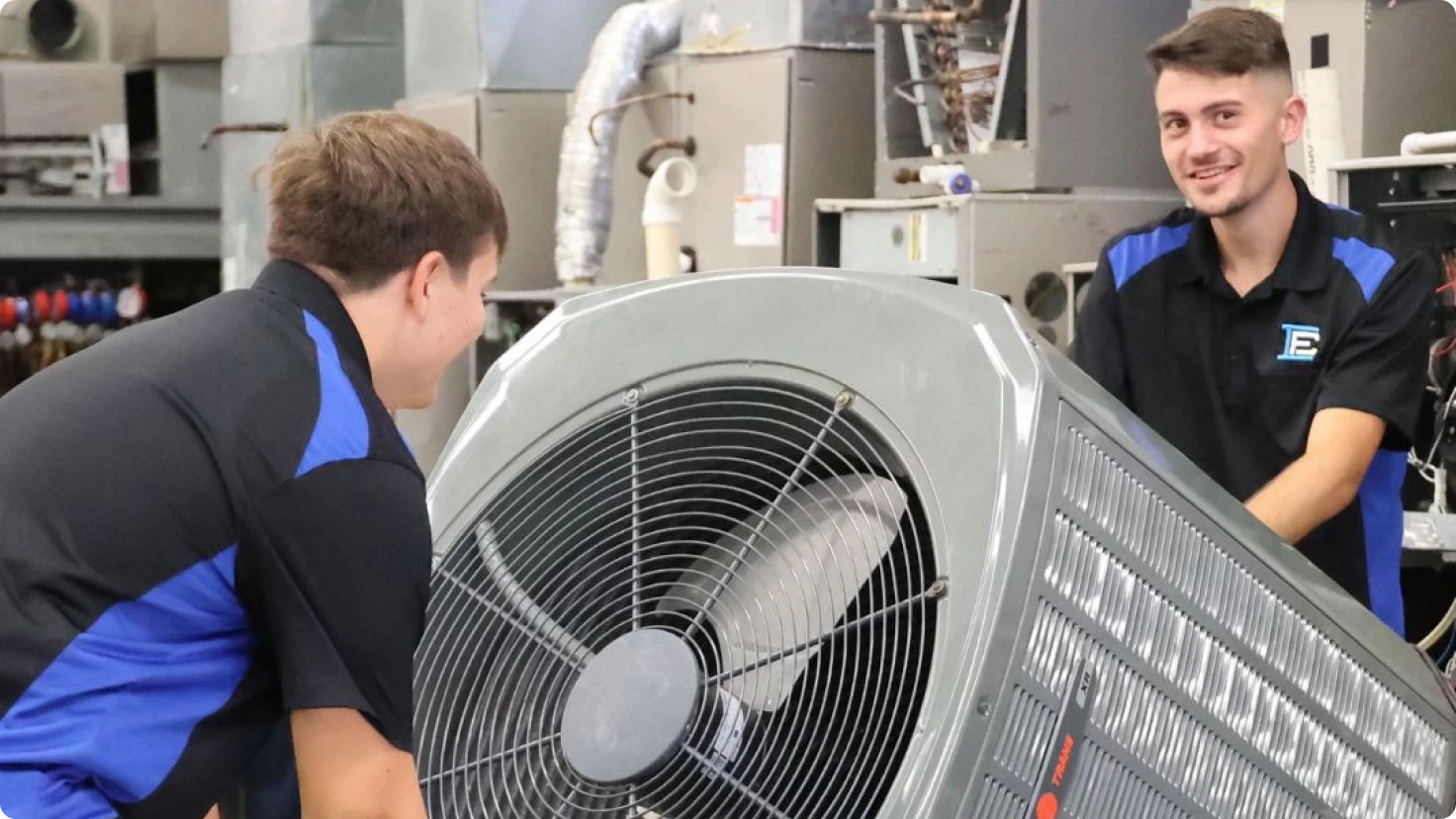
Students of Eastland-Fairfield Career & Technical School
HVAC schools and training programs in Ohio
- Eastland-Fairfield Career & Technical School, Groveport, OH, 614-836-4530
- Miami Valley Career Technology Center, Clayton, OH, 937-837-7781
- Tri-C Metro College in Cleveland, OH
- Matrix Trade Institute in Beachwood, OH
- University of Northwestern Ohio, Lima, OH, 419-998-3120
- Cuyahoga Valley Career Center, Brecksville, OH, 440-526-5200
- Great Oaks Institute of Technology, Cincinnati, OH, 513-771-8840
- C-TEC Career and Technology Education Centers of Licking County, Newark, OH, 740-364-2832
- Southern Ohio Technical Institute, LLC, Cincinnati, OH, 513-753-7684
FAQs about HVAC licensing in Ohio
Here are some commonly asked questions about HVAC licensing in Ohio:
Can I use my Ohio HVAC license in other states?
While your Ohio HVAC license demonstrates your expertise and qualifications within the state, using it to work in other states requires careful consideration of reciprocity agreements and licensing requirements in those states. If you’re planning to move to another state permanently, be prepared to follow that state’s licensing process. In many cases, you will need to meet their educational, experience, and examination requirements to obtain a license specific to that state.
Reciprocity Agreements
Reciprocity agreements allow licensed professionals from one state to work in another state without undergoing the entire licensing process again. However, when it comes to HVAC licenses, reciprocity is not common. Most states have their own unique licensing requirements and regulations, making it challenging to simply transfer your Ohio license to another state.
License Transfer Considerations
When moving to or working in another state, you should take the following steps:
- Research the Target State: Research the licensing requirements of the state where you intend to work. Check whether the state has any reciprocity agreements with Ohio or any provisions for recognizing out-of-state licenses.
- Contact Licensing Authorities: Reach out to the licensing board or regulatory agency in the target state to inquire about their policies regarding out-of-state licenses. They can provide the most accurate and up-to-date information.
- Experience and Education: Some states may consider your experience and education from Ohio when evaluating your application for a license in their state. However, this does not guarantee automatic approval.
- Additional Requirements: Be prepared for the possibility that you might need to fulfill additional requirements, such as passing a state-specific exam or completing certain training programs.
- Temporary Licenses: Some states offer temporary licenses that allow you to work while you meet their specific requirements for full licensure.
Do I need specialized software for my HVAC business?
Yes, HVAC software can streamline operations. Field service management software helps with scheduling, dispatching, and tracking jobs. Customer relationship management (CRM) software assists in managing client interactions, while accounting software handles financial aspects.
This is where a comprehensive field service management software such as Workiz, comes into play. Dedicated software tools like Workiz are designed to streamline and enhance various aspects of your HVAC business operations, making it an invaluable tool for your success.
